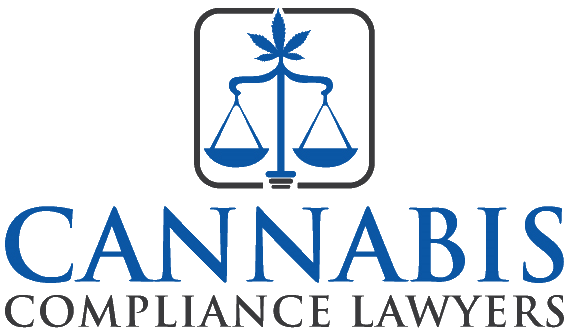Cannabis Business Alternative Dispute Resolution in California
The Cannabis Industry is facing unique challenges and needs carefully designed solutions
Lawsuits and trials are the traditional method for resolving legal disputes. Unfortunately, litigation is time consuming, expensive and public. Juries, and sometimes even judges, are unpredictable. Many legal disputes simply cannot be resolved cost-effectively when bound to the rules and limitations of courtrooms.
In more recent years, many businesses have turned to various alternative dispute resolution (ADR) techniques to resolve or decide business disputes of many types and sizes. ADR methods include arbitration, conciliation, mediation, early neutral evaluations, and variations of each.
However, most arbitrators are retired judges or “more experienced” lawyers, who very likely do not understand the cannabis industry, and may not agree with its being legalized.
No cannabis business wants a negative bias or disdain in any tribunal. For ADR to be succesful, all parties must trust that they will be respected and general norms of business will be followed.
We at Cannabis Compliance Lawyers have two important advantages:
First, we know many of the local arbitrators personally, and have investigated which arbitrators are open the unique issues related to the cannabis industry, which arbitrators are knowledgeable in the unique challenges associated with the cannabis industry, and which prefer not to handle cannabis issues.
Second, we serve as arbitrators/mediators/evaluators within the cannabis industry, and many others, on a regular basis. We can therefore represent you in ADR as necessary or can serve as an ADA neutral when necessary.
The Benefits of Arbitration
Arbitration is the most formal alternative to litigation. In this process, the disputing parties present their case to a mutually selected arbitrator, who renders a decision.
Arbitration is generally considered a more efficient process than litigation because it is quicker, less expensive, and provides greater flexibility of process and procedure.
The parties often select the arbitrator and exercise control over certain aspects of the arbitration procedure.
Arbitrators typically have more expertise in the specific subject matter of the dispute than do judges. They may also have greater flexibility in decision-making.
Arbitration agreements generally provide a means for selecting the arbitrator or panel of arbitrators, the format of the hearing, the procedural and evidentiary rules to be used, and the controlling law.
If these details are not provided for in the contract, the parties may seek assistance from agencies that administer arbitrations.
Unfortunately, arbitration has become less effective in resolving disputes for several reasons.
Although many arbitrators provide excellent service and fair results, many have experienced arbitrators who don’t.
Because there is generally no judicial review or oversight of arbitrator’s awards, some results may be contrary to law, and some are contrary to fact. Therefore, knowing which arbitrators are good and which are not is critical.
Because an arbitrator’s decision can be enforced in a court of law, arbitration is not always a confidential process.
The Benefits of Mediation
Mediation is the least formal alternative to litigation. In this process, the disputing parties meet with a mutually selected mediator, who does not render a decision, but helps work with the parties to find areas of agreement, and hopefully navigate the parties toward a mutually agreeable resolution.
It is common wisdom that business disputes are better resolved among business people than by courts, and skilled mediators are very knowledgeable in techniques to assist parties in overcoming obstacles.
Business, especially those in a rapid growth cycle, can benefit greatly from the significant savings of time, expense and human capital by utilizing skilled mediators to resolve disputes.
Because mediation generally results in a mutual settlement, the process is almost always confidential. However, where a settlement is reached, and one or more parties either refuses to abide by it or a party needs court intervention to enforce the settlement, meditation is not always a confidential process.
The Benefits of Conciliation
Conciliation is ADR process through which disputing parties use a “conciliator”, who meets with the parties both separately and together in an attempt to resolve their differences.
They do this by lowering tensions, improving communications, interpreting issues, encouraging parties to explore potential solutions and assisting parties in finding a mutually acceptable outcome.
Conciliation differs from arbitration in that the conciliation process has no legal standing, and the conciliator usually has no authority to seek evidence, call witnesses, and usually writes no decision, and makes no award.
Conciliation differs from mediation in that in conciliation, often the parties need to restore or repair a relationship, either personal or business.
Conciliation has its roots in historical cultures where town elders were called upon to help parties resolve disputes, not by force, but by wise guidance and reform. Japanese law also makes extensive use of conciliation in civil disputes.
Conciliation is almost always a confidential process.
The Benefits of Early Neutral Evaluation
Early neutral evaluation (ENE) is a process in which an informal presentation is made by the parties to a dispute to a neutral having respected credentials for the purpose of obtaining an oral or written evaluation about the parties’ positions. The evaluation may be binding or non-binding, depending on the parties’ agreement.
ENE is most typically used either: a) when the dispute involves technical or factual issues that lend themselves to expert evaluation; or b) when the parties simply need a resolution to move forward.
It can be a relatively simple, expedient and cost effective way of getting an expert’s candid assessment of each party’s claims and evidence, and a short cut to prompt resolution.
Virtually every ENE is a confidential process, and when it results in a resolution, that process is confidential, and therefore is likely to take on a more significant role in resolving cannabis disputes.
Please contact us today if you need help dealing with a dispute.

